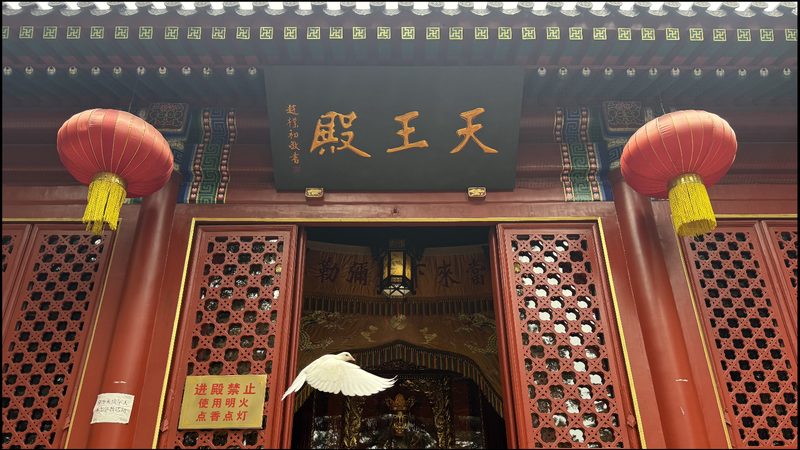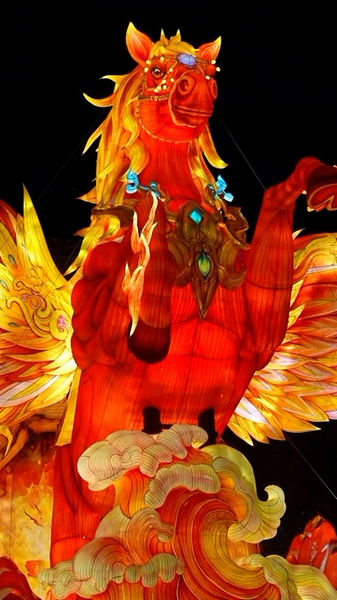Qingdao, a coastal city in the Chinese mainland’s Shandong province, awakens under a soft morning light. After yesterday’s rain, the air smells of fresh ocean breeze and pine.
Stepping under the temple gates feels like crossing into a calm, ancient world. Under tall pines, locals sip tea in small glass jars, whispering stories as doves flutter around 🕊️. A veil of incense drifts from the halls, carrying the soft chant “Om mani padme hum.”
In Tibetan Buddhism, this six-syllable mantra—“Hail to the Jewel in the Lotus”—represents compassion and wisdom. Each note is said to clear away ego, jealousy, and fear, guiding you toward inner peace 💭.
I follow the chant into the main hall. Rows of black iron pavilions hold pink lotus candles and burning incense, their smoke rising like silent prayers. Wooden prayer plaques line the walls, jingling gently in the breeze.
Inside, statues of Buddha sit with serene smiles. As voices rise in unison, I feel a warmth in my chest. My hands come together, heartbeats syncing with the chant. Tears fill my eyes—not sadness, but a gentle fullness that connects me to everything around me.
Outside again, my mind feels lighter. Watching visitors drift between halls, I’m struck by how faiths here live side by side—temples, mosques, and churches coexisting in harmony 🤝.
In a world that often rushes by, Qingdao offers a moment to pause, breathe, and find serenity in incense, stained glass, and the endless tide 🌊✨.
Reference(s):
Incense, stained glass, and the tide: Tracing serenity in Qingdao
cgtn.com




